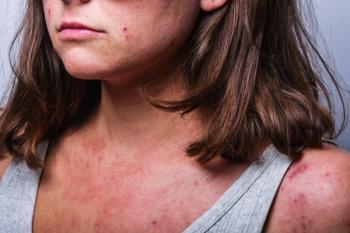
Early allergen, germ exposure may prevent asthma
Babies exposed to pet and rodent dander, cockroach allergens, and household bacteria are less likely to develop allergies, wheezing, and asthma, but only if the exposure occurs before 1 year of age, a new study reports.
Babies exposed to pet and rodent dander, cockroach allergens, and household bacteria are less likely to develop
The Urban Environment and Childhood Asthma Study evaluated a birth cohort of children at high risk for asthma in Boston, New York, Baltimore, and St. Louis, assessing the children’s environments for allergens. A nested case-control study of 104 infants also analyzed bacteria in house dust collected during the babies’ first year. Researchers then examined associations among environmental factors, sensitization to airborne allergens, and wheezing at 3 years of age in the 467 children who had enough data to assess recurrent wheeze.
Cumulative exposure to allergens was associated with sensitization and recurrent wheeze at 3 years of age, but children exposed to cockroach droppings and mouse and cat dander before age 1 year were less likely to wheeze at 3 years. Children exposed to all 3 allergens-cat, mouse, and cockroach-in their first year had markedly lower rates of allergy and wheeze (17%) than children exposed to no or fewer allergens (51%). Likewise, babies exposed to certain bacteria in dust during their first year had allergy and wheezing less often at age 3 years.
Inner-city children with the highest levels of exposure to both allergens and bacteria were least likely to show sensitization and recurrent wheezing. About 41% of children who were free of allergies and wheezing had grown up in the highest exposure environments compared with 8% of allergic and wheezing children.
By 3 years of age, 35% to 50% of children have developed a wheezing illness. Around 7 million American children suffer from asthma, according to the
To get weekly clinical advice for today's pediatrician,
Newsletter
Access practical, evidence-based guidance to support better care for our youngest patients. Join our email list for the latest clinical updates.






